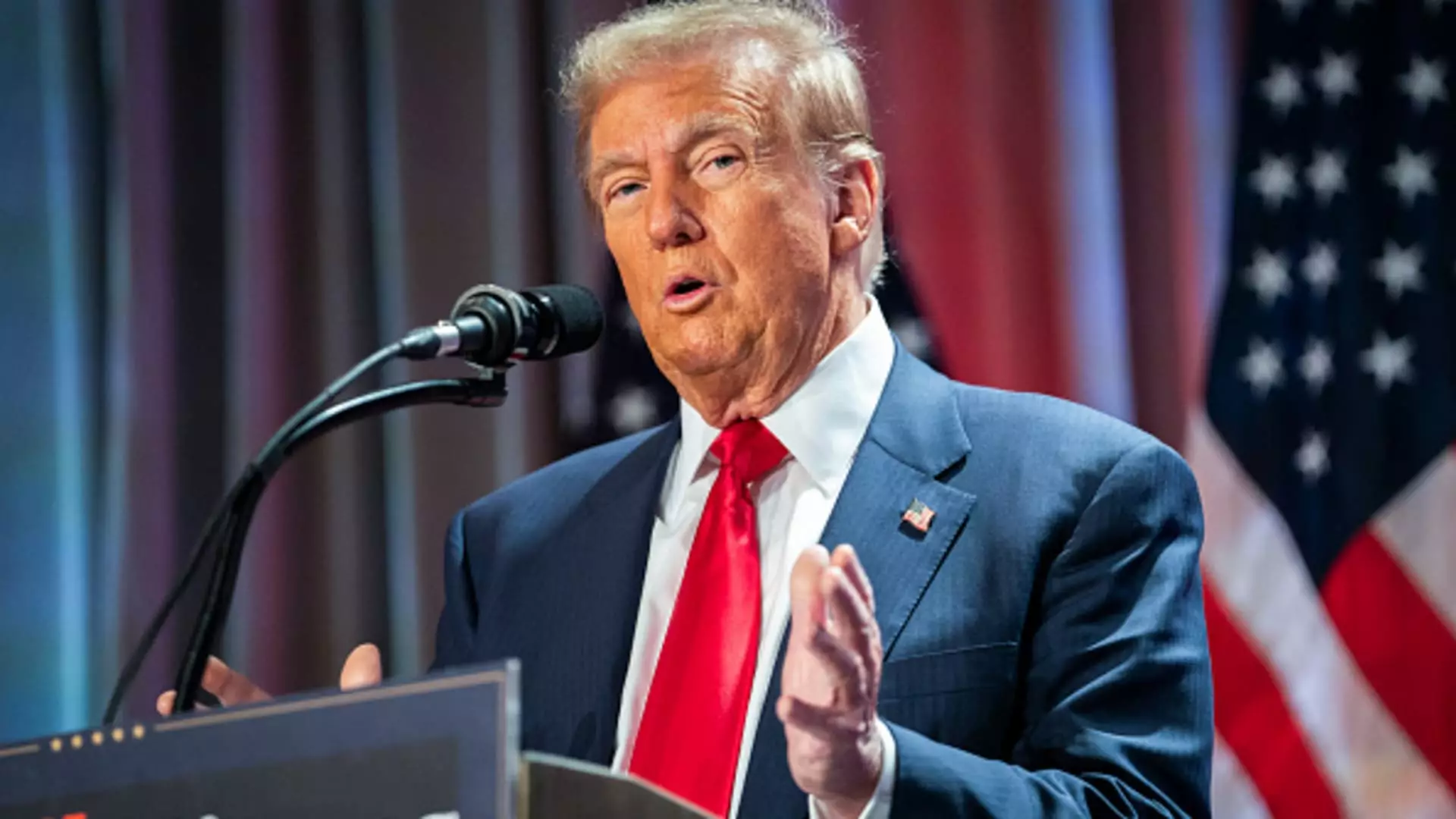As the United States braces for a new economic landscape shaped by President-elect Donald Trump’s impending tariff policies, investors are confronted with a nuanced set of challenges and opportunities. John Davi, an astute money manager and CEO of Astoria Portfolio Advisors, emphasizes the importance of careful investment selection amid looming inflation concerns. His insights indicate that the incoming administration’s approach may usher in an era of inflationary pressures that demand strategic adaptations for portfolio management.
Davi’s strategy pivots towards small-cap industrial stocks, which he believes hold a more favorable risk-reward ratio compared to their large-cap counterparts. This perspective is not merely a speculative position but rather rooted in the expectation that the government’s pro-growth initiatives will disproportionately benefit smaller U.S.-based companies. Such an outlook aligns with the post-election performance of the Russell 2000 index—an indicator of small-cap stocks—showing a notable uptick of approximately 4% since the election results were finalized.
The Case for Domestic Focus
Davi’s investment philosophy leans heavily towards domestic exposure. He suggests that, despite the potential complications brought about by tariffs, the U.S. market remains resilient and offers promising opportunities. His conviction rests on the belief that small-cap companies are likely to thrive in an environment where domestic policy favors local businesses over foreign counterparts.
Furthermore, Davi underscores the significance of the upcoming midterms, arguing that the next two years will be crucial in shaping both economic policies and market sentiment. His positioning towards domestic investments indicates a bullish outlook on small-cap stocks, framing them as a viable option for discerning investors looking to capitalize on the anticipated pro-American business policies.
Avoiding Fixed Income Risks
While many investors might still gravitate towards traditional safe havens like bonds during periods of uncertainty, Davi presents a cautious approach to fixed income. His concerns over the increasing budget deficit signal potential dangers for bondholders, especially as yields on the benchmark 10-year Treasury have surged by 3% following the election. This spike in yields suggests that the bond market is responding to inflation expectations and fiscal policy shifts, which could undermine fixed income returns moving forward.
In his view, the complexities involved in navigating fixed income investments amidst such fiscal challenges warrant careful consideration. This perspective serves as a reminder that even traditionally conservative asset classes like bonds may not provide the expected safety net in the face of evolving economic conditions.
The financial landscape shaped by Trump’s tariff agenda requires investors to rethink their strategies holistically. As highlighted by Davi, an increased focus on small-cap stocks and domestic investments appears to be a prudent approach in the near term. However, the caution expressed towards fixed income investments reveals a broader need for adaptability in today’s economic climate. Investors would be wise to stay informed and agile, ensuring their strategies align with the rapidly changing political and economic environment.

